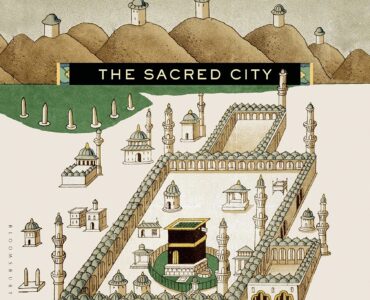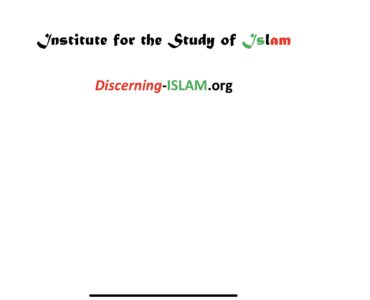
Gülen Movement
The Gülen Movement (GM), called “Hizmet” [service] by loyalists and “Cemaat” [community] by critics), refers to a collection of individuals and institutions that act in accordance with the teachings of a retired, self-exiled Muslim Turkish preacher, Muhammed Fethullah Gülen. Anchored upon a foundation of private (or privately managed) educational institutions, the GM also includes initiatives in news and entertainment media, international trade, finance, information communication technologies, construction, legal services, accounting, and public relations. By the early 2000s, the GM had grown to become Turkey’s largest and most influential religious community, and one of world’s most significant contributors to Islamic knowledge and Muslim identity.
Origins
The GM emerged as a splinter group of a preexisting religious community in Turkey called the Nur. Dating back to Turkey’s early Republican era, the Nur refers to followers of Bediüzzaman (“Wonder of the Age”) Said Nursi, an activist, scholar, and warrior of Kurdish origin who became a leading voice of critique during the turbulent years of Turkey’s transformation from empire to republic following World War I. Uneasy with the policies of secularization that were promoted by Mustafa Kemal Atatürk, Nursi shifted from a one-time supporter of the republican cause to one of its most vocal critics. He was thus designated an enemy of state and spent much of his life in prison or under house arrest. While in confinement, Nursi drafted a large compendium of commentaries upon the Qur’an and responded to hundreds of letters from his students about matters of faith, nation, and modern social change. Central to his teachings was an articulation of the inherent harmony between Islam and modern science, together with an emphatic plea for Muslims to become educated in modern knowledge, albeit with a grounding in Islamic morality. Collectively known as the Risale-i Nur Külliyatı (RNK, Epistles of Light Collection), Nursi’s teachings helped many Turks reconcile their yearning for pious identity formation in the context of state-enforced secularization.
After Nursi’s passing in 1960, Nur affiliates contested with one another about how best to disseminate their leader’s teachings, which led to the community’s fracturing. Although among the youngest offshoots, by the late 1980s admirers of Fethullah Gülen had re-articulated much of the Nur’s organizational habits and had applied them toward the establishment of a countrywide professional and social network. By the late 1990s the GM had become, according to some observers, the largest and most influential of all Nur communities and according to others, a distinct sociopolitical entity.
Known as “Hocaeffendi” (“Esteemed Teacher”) to those who revere him, Fethullah Gülen was born in 1938 or 1941 (exact year of birth disputed) in the northwestern Turkish city of Erzurum. Although he received only an elementary level of secular education, he is presented as having memorized the Qur’an early in his life, and as becoming a prayer leader by his early teens. By his twenties Gülen is said to have become a master of Islamic epistemology (study of knowledge), and to have cultivated an interest in European philosophy, hermeneutics, and literature. In the mid-1960s he became an employee of Turkey’s Presidency of Religious Affairs (Diyanet) and was appointed as a teacher of religion at Kestanepazarı mosque in İzmir. By the mid-1970s Fethullah Gülen was attracting large crowds to his public sermons, and his followers started to organize a number of student dormitories and summer camps. Audiocassettes of his sermons became more widely disseminated, and young people from around the country began to participate in his community’s activities.
Between 1980 and 1983 Gülen’s followers restructured a number of preexisting dormitories to function as private, for-profit educational institutions. The first two were established in 1982 in İzmir and Istanbul. Over the course of the 1980s, dozens more Gülen-inspired schools (GISs) were opened throughout the country. In addition to private elementary and secondary schools, the GM expanded into the field of standardized examination preparation. Called dershaneler (“lesson houses”) in Turkey, the GM eventually cornered a niche in cram course curriculum to become the country’s leading producer of exam-focused courses. This produced a youth-oriented organizational model that blossomed in the 1990s when hundreds of thousands of aspiring university students were encouraged by GM ağabeyler (“older brothers”) to live at GM-affiliated student dormitories or apartments called işık evleri (“houses of light”). In close quarters and under the tutelage of elders, students were encouraged both to keep up with their studies, but also to acquaint themselves with the teachings of Fethullah Gülen and Said Nursi.
Connecting students to a growing network of schools, businesses, publishing houses, financiers, and exporters allowed the GM to create for itself a growing pool of human resources, and subsequently, to build a vast economic network of suppliers, clients, and patrons. GISs were not only outfitted with teachers via the GM’s social network, but also with media and multimedia equipment, textbooks, and stationary goods via affiliated firms. Owners of these firms maintained close ties to the GM by subsidizing student rent at işık evleri, by providing scholarships to students to attend a private GIS, and by providing startup capital for new GM ventures. By the mid-2000s the GM had expanded its variation of “market Islam” to well over one hundred countries.
Thought And Practice
Turkey is a majority Sunni society, and “official” Islam is state-sanctioned in accordance with the Hanefi (Hanafi) legal school. Beyond the state’s Islam, however, is a deep-rooted tradition of Sufism. The Nakşibendi (Naqshbandi), the Mevlevi, Rifai, and others all have long histories in Anatolia. Both facets of Islam inform much of the GM’s worldview, organization, and ritualistic practice, but much of its collective practice is also emblematic of invented tradition that is somewhat unique to the GM case.
Gülen’s teachings are disseminated in print and online via hundreds of books, essays, periodicals, and websites. Although the entirety of his oeuvre is available in Turkish, a large body (although often incomplete) has been translated into English, and to a lesser degree into other languages. A central refrain in Gülen’s teleology is a need for “volunteers” who are “filled with love for all of humanity” who collectively represent “the generation of hope.” This generation’s task is to cultivate a future “golden generation” (altın nesil) that will create the conditions for Day of Judgment:
“What we need now is not ordinary people, but rather people devoted to divine reality . . . people who by putting into practice their thoughts, lead first their own nation, and then all people, to enlightenment and to help them find Allah . . . dedicated spirits . . . who wander like Israfil . . . on the verge of blowing the last trumpet in order to prepare dead spirits for the Day of Resurrection . . . (Gülen 2004, 105–110).”
Gülen’s worldview thus parallels religious revivalism more generally. Humanity is presented as having strayed from the path of morality and divinely inspired wisdom, which itself is a product of consumerism (materialism), carnality, and individualism. Helping society recover from this situation requires aksiyon insanları (humans of action) and hizmet insanları (humans of service) who can offer irşad (moral guidance) to others. Such guidance is presented at the micro level by elders (ağabeyler), at the mezzo level in classrooms and in community social groups (sohbetler), and at the macro level via publishing, mass media, and market services.
Hizmet And Himmet
The GM strives to cultivate ihlas (divine approval) among all people for all daily actions. This means that GM loyalists strive to mold individuals into agents of social change in accordance with socially conservative Muslim values. Gülen instructs that such change necessitates passive engagement with the social and political world, and in so doing he asks hizmet insanları to convince others of the GM’s positive worth by acting as models for emulation. The Turkish concept that anchors this method of recruitment is called temsil, which Tittensor (2014) translates as “representation.” How best to “represent” what Gülen calls “ideal humanity” is to offer hizmet (service) to others as an actor in the GM network. This is precisely the reason why GM affiliates prefer to designate their congregation Hizmet (as opposed to the Cemaat or the GM).
In addition to serving the community through hizmet, individuals also serve through himmet (religiously motivated financial donation). In a refrain uttered throughout the community, individuals “give according to their means,” which refers to the fact that while a low-level service worker at a GM firm may donate the equivalent of $200 a month to the spiritual coordinator in his company, a wealthy business owner may donate ten or twenty times that amount. These practices (himmet and hizmet) are most vividly exemplified by university graduates who volunteer to teach at GISs in countries around the world. Now a common option for university graduates in Turkey, GM teachers typically travel to teach for comparatively little pay and are expected to work long hours, extra hours, and on weekends, and although paid a salary, they are still expected to regularly donate himmet to a superior in the company. Likely having received some benefit from the GM earlier in life (e.g., free tutoring, subsidized rent, etc.), teachers at GISs often report that they are not only willing, they are honored to serve as teachers throughout the world and to donate some portion of their income back to the community.
Challenges
Since the GM’s inception, a number of Turkey’s news columnists, public intellectuals, and politicians have asserted that GISs function as institutions for brainwashing in the interests of Gülen’s Islamist agenda. The old (and recently revived) claim is that Gülen emphasizes education because he requires loyalists to infiltrate the Turkish military, the country’s police forces, the judiciary, and other strategic institutions of state so as to purge the Turkish republic from the inside out. In order to find their way into these institutions followers need to compete in a competitive labor market, which requires an education-centered network of schools, media, cross-sector service providers, and effective public relations.
Over the years GM loyalists have refuted these accusations by claiming that in a democracy anyone should be able to pursue his or her career objectives according to his or her skills and interests. If policemen, lawyers, judges, and other bureaucrats personally affiliate with a religious community, that should remain their personal business and should not implicate them in clandestine behavior. Despite such statements, however, arguably the most difficult challenge for the GM has been to maintain its stated “non-political” identity, a task that has proven especially challenging in recent years when it became one of the country’s most powerful collective agents under the political administration of Turkey’s conservative Adalet ve Kalkınma Parti (AKP, Justice and Development Party).
Although allies during the AKP’s first two terms (2002–2011), 2014 began with the former leader of the AKP (now president) Recep Tayyip Erdoğan lambasting what he called “the parallel state” (referring to the GM) for attempting a coup against the AKP government. In the months that followed, hundreds of policemen were fired or reassigned in precincts throughout the country, and dozens of prosecutors were removed from their posts because of their alleged ties to “the parallel state.” Throughout 2014 Turkey’s AKP regime continued to purge police departments and prosecutors’ offices, encouraged public divestment from the GM’s Bank Asya (and sought its nationalization), blocked state contracts with GM-affiliated firms, and canceled the state’s support for GM-sponsored events (e.g., Turkish Language Olympics). More personally, Prime Minster Erdoğan filed civil lawsuits against a number of GM-affiliated journalists for libel.
For his part Gülen initially responded to these events with emphatic denials that he or his admirers had anything to do with illegal activities, with stirring up public unrest, or with orchestrating criminal investigations. GM-affiliated media shifted much of their focus to reporting on the topic as victims of a witch-hunt. Somewhat confusing for some, however, is that despite current tensions, the GM and the AKP continue to have aligned worldviews to the point that, according to some analysts, “Gülenism” has become official state ideology in Turkey. This is significant because it highlights that current tensions are best interpreted as struggles between like-minded elites who have outgrown each other’s cooperation, than they are about rival ideologies in Turkey’s political public.
Indeed, despite recent friction the GM remains a leader in defining conservatism and national identity for pious Turks. Moreover, unlike the AKP, the GM continues to expand its influence beyond Turkey where its actors compete for the hearts and minds of non-Turkish observers who look to Turkey as a model for sustainable East/West, Muslim/Christian, pious/modern civilizational relations.
Gülen Movement
904 – 013
Home
Last Updated: 05/2022
See COPYRIGHT information below.



